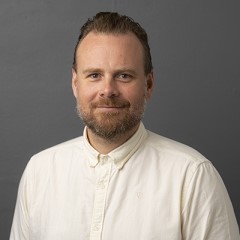What drives global disparities in science?
A new research project led by Mathias Wullum Nielsen will examine global North-South disparities in research. The project is funded by a DKK 6.2 million grant from the Independent Research Fund Denmark.

Science is increasingly international, but clear disparities persist between the world's richest and poorest countries.
How do international collaboration patterns feed these disparities? And what are the consequences of internationalisation for research institutions and communities in less prosperous regions?
These are some of the key questions raised in a new project funded by the Independent Research Fund Denmark through a DKK 6.2 million Sapere Aude grant (see box).
The project is led by Mathias Wullum Nielsen, Associate Professor at the Department of Sociology. He expects that the project will yield important new insights into the factors driving science’s North-South disparities.
“Previous research clearly documents the extent of the North-South divide in scientific knowledge production between wealthy nations, like those in North America and Europe, and less affluent countries in Latin America, Asia, and Africa. Much less attention has been given to the social processes that perpetuate this divide,” says Mathias Wullum Nielsen.

The project is therefore of high policy relevance.
"Ultimately, we hope that this project will advance discussions in science policy on the best approaches to ensure that the internationalisation of science does not disadvantage research institutions and communities in the world's poorest regions. At the same time, it’s about ensuring the effective use and development of global knowledge and human resources in a rapidly expanding science system."
Focus on scientific articles
The project primarily focuses on quantitative, statistical analyses of scientific publications, which form the backbone of international research communication.
This is done through three sub-projects:
The project initially investigates the nature of collaboration between researchers from Africa and South America (the Global South) and their counterparts in Europe and the USA (the Global North). It delves into the roles played by North and South researchers in these collaborations and examines how their contributions are credited in shared publications.
There is a potential risk of overlooking key insights in critical areas like climate change, health, environmental and biodiversity conservation, technological advancement, and many other areas.
It then explores the consequences of researchers migrating from South to North to pursue careers in Europe or the US. It assesses how such relocations impact the research environments in their home countries, particularly in terms of scientific output and collaboration networks. Does the migration lead to a depletion of resources, or are there positive spill-over effects?
Finally, the project will quantify to what extent scientific ideas originating in the Global South are systematically overlooked in how researchers cite and build on each other’s work.
"Some disparities between the North and South may arise from direct discrimination or narrow-mindedness. Others can be attributed to language barriers, or the lack of resources to foster strong research environments in less affluent countries. Both issues are problematic, affecting not only these countries but also the broader scientific community," Mathias Wullum Nielsen emphasizes.
"There is a potential risk of overlooking key insights in critical areas like climate change, health, environmental and biodiversity conservation, technological advancement, and many other areas."
Contact
Mathias Wullum Nielsen
Associate Professor
Department of Sociology
Email: mwn@soc.ku.dk
Mobile: +45 61 68 45 57
Søren Bang
Journalist
Faculty of Social Sciences
Email: sba@samf.ku.dk
Mobile: +45 29 21 09 73
